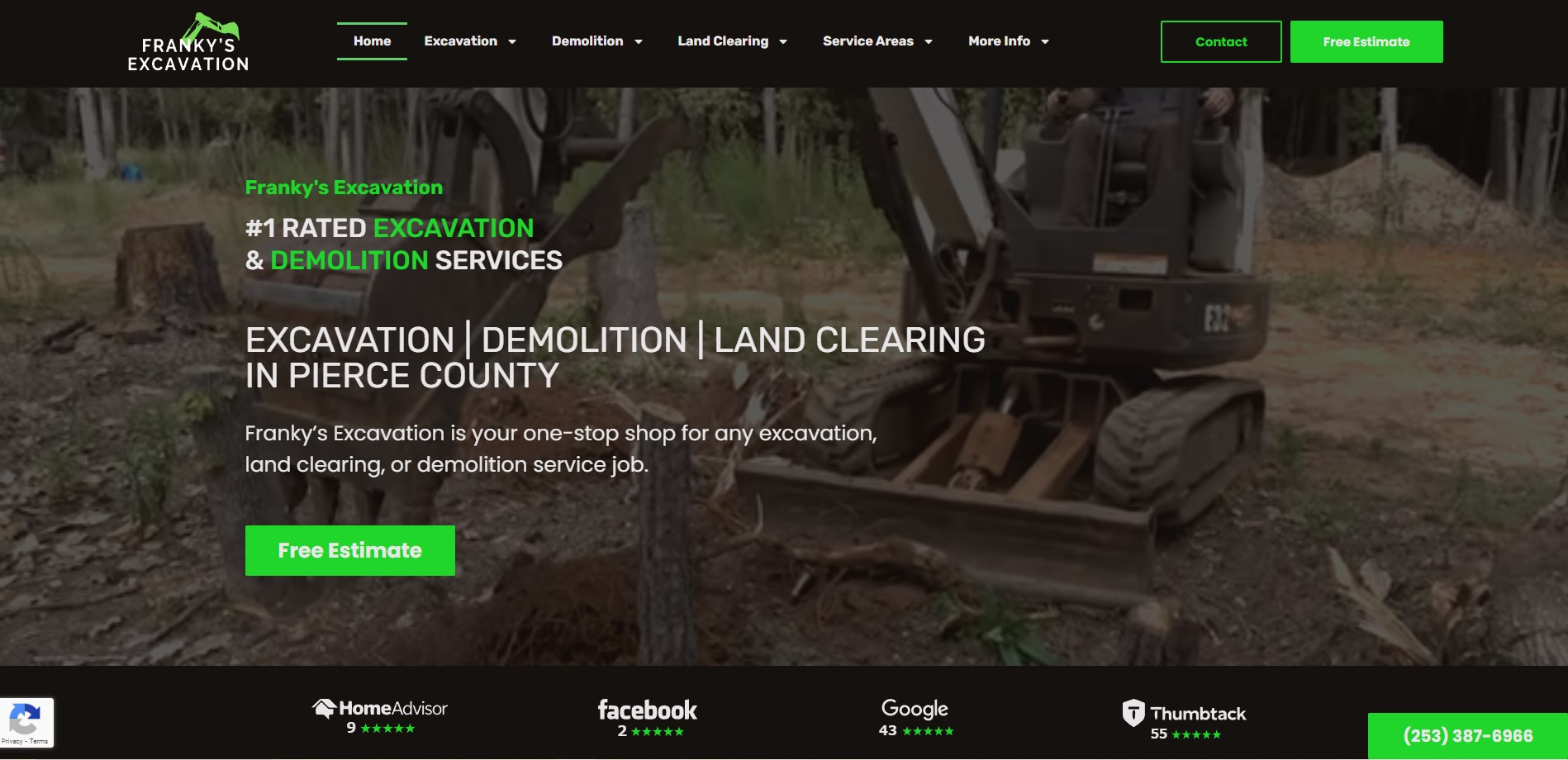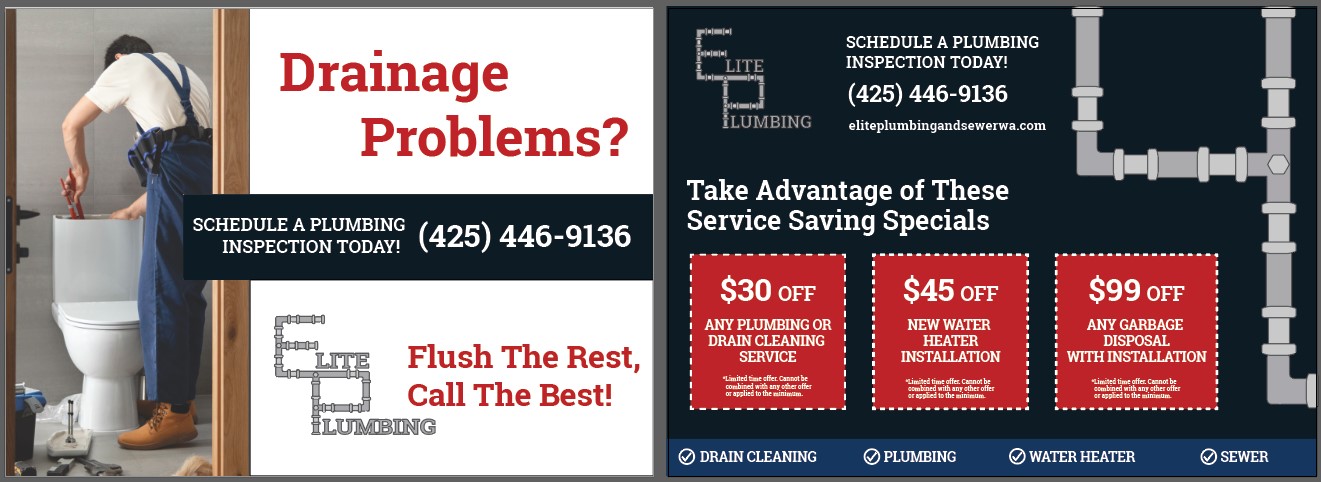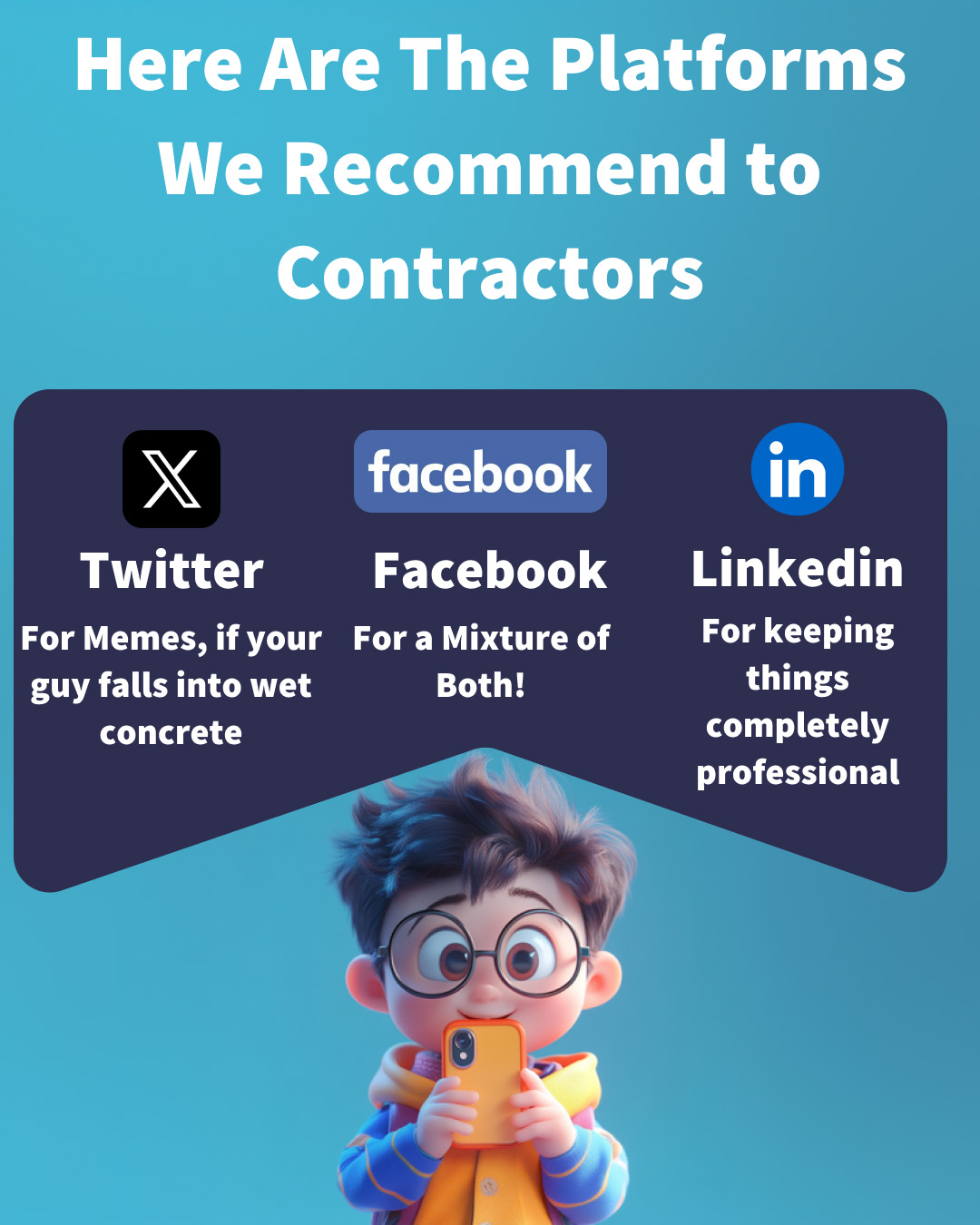Being a skilled contractor alone isn’t enough to cut it when it comes to how digitized our world is nowadays. Ups and downs are going to happen when running your company, but you’re not alone. Become the company you are striving to be, by pushing to become the face not only in the real world, but in the digital world as well.
With this marketing guide, go forward with your marketing ambitions; through your contractor business, bringing you more leads and exposure. No more fighting with those tire-kicker leads.
Forget the days of relying only on word-of-mouth. It’s time to gain the power of the internet, social media, and strategic local tactics to build a marketing machine that works 24/7. Need help with marketing your contractor company?
We will go over:
- Branding
- Website Built for SEO
- Local Marketing Ideas
- Local SEO Strategies (Google Maps)
- Google Ads and Facebook Ads
- Using Social Media for Local Exposure
Branding to Build Your Contractor Company
Branding is a very important aspect of longevity in your contractor’s business model. You do not just want to stand out, you want to be the best in your niche. At the end of the day, no matter how great your branding is, if you are not a powerhouse in your industry, you will have a hard time getting more leads.
Here are some things to keep in mind when branding:
- Logo: Keep it simple. Keep it clean. You can use elements that represent your trade, like a stylized house for general contractors or a water droplet for plumbers. It should look good on both a business card and on mailers.
- Colors: Choose colors that reflect your company’s personality and the services you offer. Try to stick to 2-3 main colors for consistency. The brand colors should also be used on your website.
- Purpose and Mission: Your purpose is why you exist beyond making money. Maybe you want to improve home safety or bring modern design to your community. Make this apparent to not only your clients but also your employees.
- Brand Voice: Use a consistent tone for all your communications. Are you formal and professional, or casual and friendly? Keep it consistent on Social Media and Website Copywriting.
- Brand Story: Share how your company started, the challenges you’ve overcome, and your vision for the future. Make sure to humanize everything! People want to talk to other people, not an android!
Branding is about creating a clear image that resonates in the hearts of your target customers and sets expectations for the quality of your work.
Setting Up Your Contractor Website

Your website is often the first point of contact between your contractor business and potential clients. It needs to be informative, user-friendly, and optimized for search engines. Contractor Web Design does not have to be hard, simplify it.
A typical contractor website consists of these pages:
- Home page
- Contact page
- About us
- Project page
- Service pages
- Location pages
- Blog
An example for the location page H1 would be “Expert Roofing Services in [City Name]”
Keep in mind mobile, URLs, meta titles, meta descriptions, alt text for images, local schema, and internal linking from the home, to the location-pages-and-services are a great start for the foundation of SEO on your company’s site.
Local Marketing Tasks to Put On Your To-Do-List

While digital marketing is crucial for your contractor business, local offline marketing strategies can significantly boost your visibility in your community.
- Add a wrap to your work van or truck to give you more exposure while on the road or at a job site.
- Hang up door hangers in your local area to give your company more exposure. Make sure to add discounts to give potential customers or clients incentives to contact your contractor company.
- Send out mailers or physically go to local communities and distribute them into mailboxes.
- Have a yard sign placed in front of your home or set up an agreement with previous clients to leave a sign in their yard for about a week after job completion for more exposure.
- Make sure to have business cards to hand out.
- Writing listings in the local newspaper is an older tactic of marketing locally, but it still works even nowadays.
- Networking with other contractors or joining events to promote your contractor business. You can offer special deals at these events to give incentives.
Remember, the key to local marketing is consistency and persistence. It often takes multiple touchpoints before a potential customer decides to contact you.
How to Increase Your Company’s Visibility With Local SEO
Local SEO 9 times out of 10, is considered your Google Maps listing. Over 40% of the traffic coming to your site will be from Google Maps as a local contractor. Plumbers, excavation contractors, or fencing contractors, you all will have to do the same thing.
Get your Google business profile all filled out, and verified, and start getting those reviews!
Here is how you get your Google Business profile rolling:
- Claim and verify your listing
- Use your exact business name, address, and phone number (NAP)
- Choose the most accurate primary category
- Add all relevant secondary categories
- Write a detailed business description using keywords naturally
- Add high-quality photos of your work, team, and premises
- Keep your hours updated, including special holiday hours
The 3 main ranking factors on Google Maps are:
- Location Relevancy
- Number of Reviews
- Main Category Your Business is Listed as
Try not to overcomplicate this process. Ranking takes time. Try to get more reviews than your competitors. Marketing is a long-term investment, not a race.
Local SEO can also be considered for your local service pages such as:
“Snohomish Excavation Contractor”
Trying to rank for “Excavation Contractors Near Me”.
Do not forget about signing up for Bing Places either! You may not get a lot of traffic from Bing, but people still use Microsoft Edge and Bing to search for contractors.
Here are a few more tips for your local SEO endeavors.
- Do your citations and business directories such as Yelp and BBB. Make sure your name, address, and phone number (NAP) are the same across all citations. Also, make sure you have your website linked on the citations as “ not “domain.com”.
- Add a Google Maps embed to your home page and service pages to help Google’s crawlers to understand your business fully.
- If you plan to write blog content, from our experience here at Blue Sky Advertisement, “What, When, Where, Who, How, and Why” queries work best for bringing in local clients. Ex:” How to Get Rid of a Concrete Driveway in [Location]”
- Make sure you have some type of plan for building links for authority to your site. If you need SEO help for your contractor business, Blue Sky Advertisement can help you out.
Local SEO can take quite a bit of time to start working, so in the meantime you might have to use Google Ads or Facebook/Meta ads as a crutch until leads start coming in.
How to Use PPC or LSA Ads to Bring in Contractor Leads
As a contractor, you probably already know what Google Ads and Facebook Ads are by now. PPC is when you pay per click to get traffic to your site in order to get leads.
Now you may be asking, what are LSA Ads? Have you ever searched for something and seen the tag “Google Certified”? Those are Google’s local service ads. Only the listed industries can apply and it can be a long process to get verified, but instead of paying per click, you pay per call (lead).
You also have the luxury of stating the lead was bad, but do not abuse it or they will kick you off the platform! LSA leads typically are more expensive than standard Google Search campaigns.
Facebook/Meta Ads have their benefits for capturing brand awareness, but if you are about to start marketing your contractor company, stick to LSA and Google Ads in the beginning.
Now let’s get down to business. Here is how we set up Google Search Campaigns for our contractor campaigns:
Note: Google Ads exact match keywords are surrounded by [], phrase match by “”, and broad match do not have anything around them
- Start a standard Google Ads Search Campaign.
- Target only 2-3 phrase match keywords and 10-15 exact match keywords to start per ad group. Please DO NOT use Broad Match Keywords as a local contractor company or you will just burn money.
- Make sure to have each ad group have its own theme. For example, if you do artificial grass installation and retaining wall installation, you should have these 2 services in different ad groups.
- Simplify the ad copy and for the start of the campaign only have 1 ad for each ad group.
- Make sure to have your locations set up correctly. Double check in the Campaigns>Campaigns>Settings>Location>Location Option drop-down that you have Presence checked and not “presence or interest”. This will burn the budget of your account as well if you do not do this.
- Add negative keywords such as: “job, jobs, cost, price, etc..”. Use a negative keyword list you find online. Adding negative keywords will help you save money on useless clicks.
- Add extensions such as photos, site links, and callouts. They allow your ad to take up more real estate and be more in the face of the user.
- As for bidding, we start every one of our accounts on manual bidding, but if you are not Google Ad savvy, stick to the “Max click bid strategy”.
- Make your daily budget as much as you are willing to spend, but if you are just testing out the waters, take it slow.
- Having a dedicated landing page for each ad group is ideal because you are able to change the page and messaging as much as you want without affecting SEO. You can also add offers that only people who clicked on your ad can see to give more chances of leads!
- Make sure that you do not have “Search Network” or “Display Network” boxes checked on your search campaign. This is one of the many things that could burn your budget.
At the end of the day, PPC can be easy to set up, but hard to execute. There are many hurdles that you have to jump over to get the results you are looking for. Use youtube videos to help you get started if you ever get lost in this journey.
On average it takes about a month to see results from PPC. Of course you can achieve results sooner, but this is just an average of 50 contractor client’s PPC accounts we manage.
How to Use Social Media Platforms to Give Your Contracting Company a Visibility Boost

Social Media Marketing…. The land of ai spam and angry people… we are just kidding! Social media platforms are great for branding your contractor company.
Here are the social media platforms we recommend for contractor companies:
- Facebook/Meta + Facebook Groups
- X/Twitter
- Instagram (if you are a remodeling contractor)
Here are the ways you can use each platform:
LinkedIn for Contractors: Your main target here is business-to-business (B2B) leads such as commercial business owners and other contractors. You can create a company page and update it often with your services and projects. Making posts about your industry’s niches and thoughts will go a long way!
Facebook/Meta for Contractors: Your main target here will be the locals in your county. Make a business page with all the information filled out and linked to your website. Post before and after photos, give tips, post testimonials, and even small videos for visibility. You can use Facebook groups to post your services, but try not to spam because that will get you kicked out….
X/Twitter for Contractors: Your main goal here is to let others know about your business and start branding more. You can follow other locals in your county or areas you service and interact with them. You can post quick updates, niche tips, and get in contact with people who could use your help. Make sure to use hashtags to target the right audience!
Same for SEO, social media marketing takes time, but if you keep being persistent, all the pieces will come together.
Social media marketing should be one of the marketing tactics you spend the least amount of time on. Learning and doing more with PPC and Local SEO will give you a greater ROI.
We hope these local and digital marketing tips helped you and wish you the best with your contractor company in becoming a digital powerhouse in your local area.






